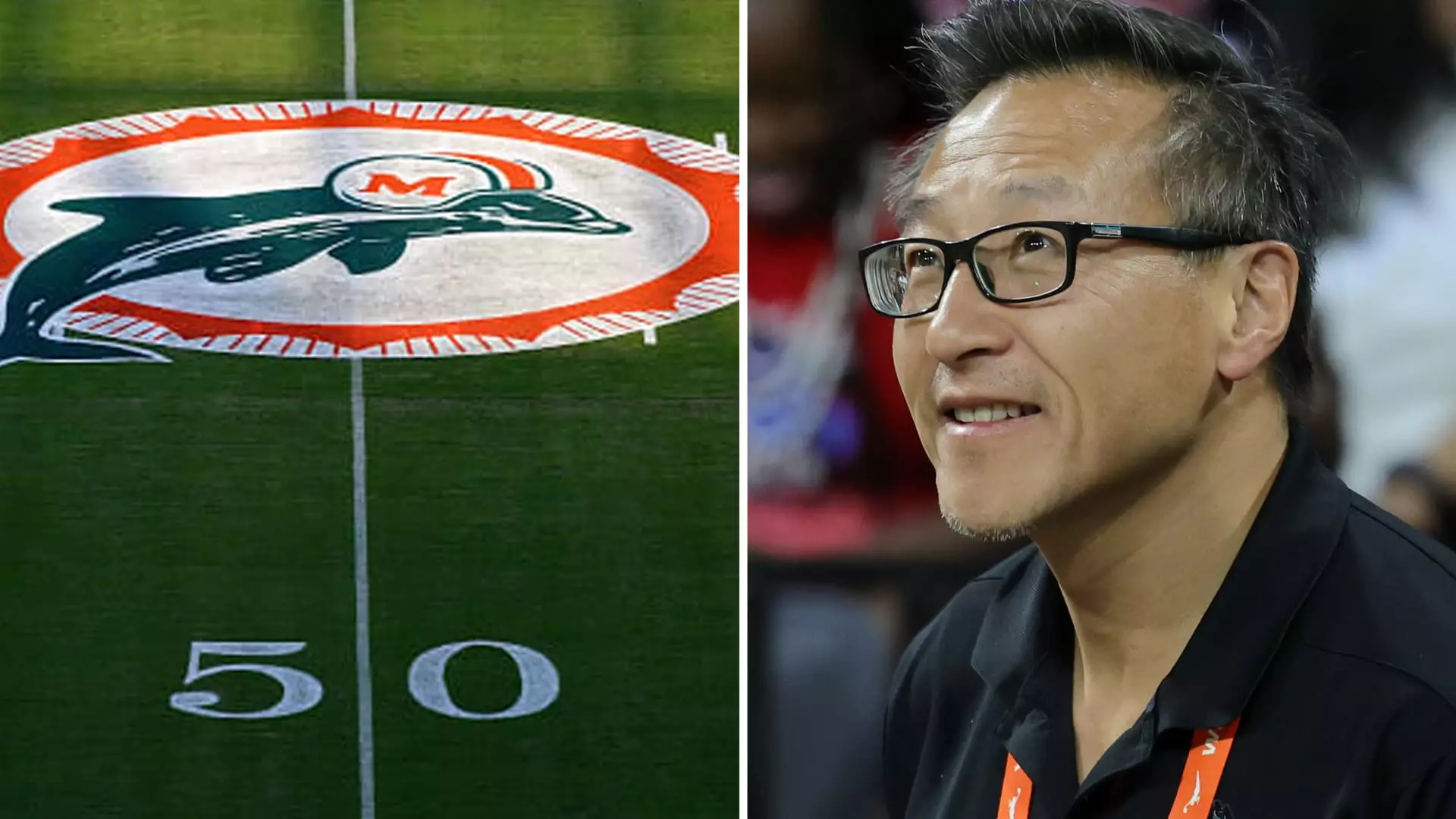The landscape of sports franchise ownership is undergoing a notable transformation, particularly with the Miami Dolphins poised for a significant financial maneuver. Reports indicate that the Dolphins are in negotiations to sell a minority interest in the team to Ares Management, a leading private equity firm, and billionaire Joe Tsai, known for his ownership of the Brooklyn Nets. This transaction underscores a broader trend among sports team owners who are increasingly looking to diversify their portfolios by acquiring stakes in multiple franchises, while also managing the venues that host their games and events. The implications of such moves can dramatically reshape the economic realities of professional sports.
Valuation and Package Details
The financial parameters surrounding this deal are striking, valuing the assets associated with the Dolphins—including Hard Rock Stadium and rights to both the Miami Grand Prix and the Miami Open—at approximately $8.1 billion. Notably, analysts suggest that a controlling stake in these assets could drawn valuations exceeding $10 billion. Currently, the Dolphins themselves are estimated to be worth around $7.1 billion, ranking them as the eighth most valuable team in the NFL, not accounting for the stadium’s monetary value. This discrepancy highlights how external investment can enhance overall team valuation.
For Ares Management, acquiring a 10% stake in the Dolphins represents a significant entry into NFL ownership, especially following the league’s recent adjustments in financing rules that now permit private equity investments. Meanwhile, Tsai is reportedly negotiating for an additional 3% stake, further cementing his status in the evolving sports landscape. However, it’s essential to recognize that no formal agreement has been reached, and the clock is ticking as the parties navigate the complexities of such a high-stakes investment.
The Broader Implications of Private Equity in Sports
The interest from private equity firms in NFL franchises marks a pivotal moment in the league’s history. The NFL has traditionally maintained a conservative stance when it comes to external financial influence, making a recent shift toward allowing private equity investments noteworthy. As valuations continue to rise, the challenge of finding suitable buyers has become more pronounced, prompting the league to explore new avenues for investment. For owners like Stephen Ross, who purchased the Dolphins for $1.1 billion in 2009, the influx of outside capital provides an opportunity to diversify his holdings. Ross’s intention to reinvest this capital into South Florida real estate and enhance his sports investments further illustrates the interconnectedness of real estate and sports management.
While the potential deal with Tsai and Ares Management represents a thrilling new chapter for the Dolphins, it also highlights the challenges franchise owners face in today’s hyper-competitive environment. During the 2023 season, the Dolphins reported a revenue of $673 million—an impressive figure that emphasizes the commercial viability of NFL franchises. However, Ross’s decision earlier this year to decline a staggering $10 billion offer for complete control indicates a more profound commitment to maintaining the familial legacy of ownership.
His business acumen and choice to operate Hard Rock Stadium provide an additional revenue stream, integral for maximizing the financial health of the team. Facilities like Hard Rock Stadium often serve as venues for high-profile events, diversifying income sources beyond just game-day revenue.
This moment of negotiation for the Miami Dolphins is indicative of a changing tide across professional sports leagues, particularly in the NFL, where traditional ownership structures are bending under the weight of modern financial pressures. Joe Tsai’s growing empire within the sports industry exemplifies how strategic investments can elevate a sports franchise’s profile and profitability. As the NFL embraces private equity investments, it remains to be seen how this will impact the league’s operational dynamics and the future of team ownership.
Ultimately, the Dolphins stand on the brink of a significant evolution that melds historic legacy with the potentials of modern finance. The interactions among stakeholders, the role of private equity, and the importance of diversified revenue streams will shape not only the future of the Dolphins but the broader fabric of professional sports ownership in the years to come.

